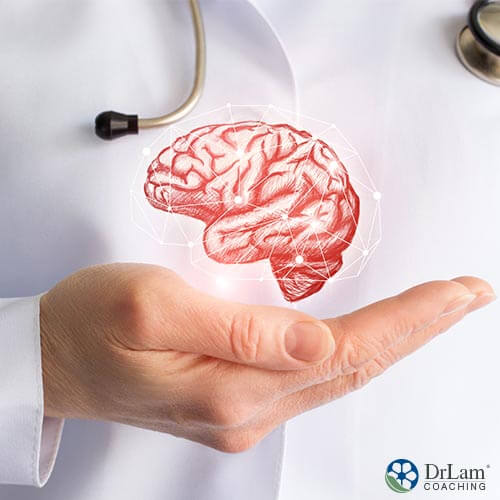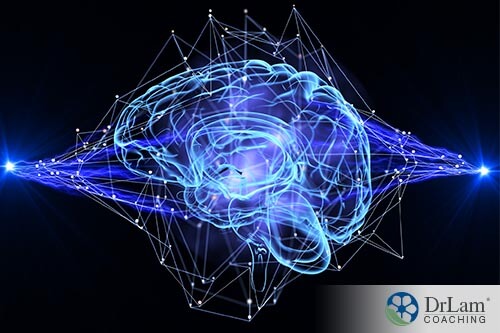 Protecting your brain health is just as important as protecting the health of the rest of your body. After all, your brain is the control center of your body, so if something goes wrong there it can affect every system and every organ. Poor brain health can also markedly diminish your quality of life and your enjoyment of everyday activities. Unfortunately, disorders and illnesses that threaten the health of your brain are all too common these days, including stress-related disorders like Adrenal Fatigue Syndrome (AFS). This debilitating condition can cause problems with your brain function that have long term consequences in terms of your health and wellbeing. Supporting your brain health is relatively easy if you know how to and are willing to make certain lifestyle changes to do so.
Protecting your brain health is just as important as protecting the health of the rest of your body. After all, your brain is the control center of your body, so if something goes wrong there it can affect every system and every organ. Poor brain health can also markedly diminish your quality of life and your enjoyment of everyday activities. Unfortunately, disorders and illnesses that threaten the health of your brain are all too common these days, including stress-related disorders like Adrenal Fatigue Syndrome (AFS). This debilitating condition can cause problems with your brain function that have long term consequences in terms of your health and wellbeing. Supporting your brain health is relatively easy if you know how to and are willing to make certain lifestyle changes to do so.
Modern life is full of stress. In fact, the extent to which you are stressed and busy has almost become a badge of honor. This may seem normal to you, but in reality can be extremely damaging to your body and your overall health. Stress has been linked to a number of ailments including heart attacks, certain types of cancer, stroke, and inflammation. It can also cause stress-related disorders such as AFS. Adrenal fatigue is caused by dysregulation of your adrenal glands in response to overuse. Your adrenal glands are an important part of your NeuroEndoMetabolic (NEM) stress response system, the system that is activated in response to stress. The circuits and organs of your NEM system help protect your body against the damaging effects of stress and prepare your body to react to the stressor.
 However, if stress continues for a prolonged period of time, your NEM system can become overworked and your adrenal glands can become fatigued. Your adrenals secrete essential hormones your body relies on both at times of stress and for regular essential functions. When your adrenal glands become fatigued, they have to work harder to meet your body’s demand for hormones. This can result in a number of baffling and sometimes debilitating symptoms such as chronic fatigue, brain fog, weight gain, digestive problems, mental disorders, heart palpitations, and an increased susceptibility to infections.
However, if stress continues for a prolonged period of time, your NEM system can become overworked and your adrenal glands can become fatigued. Your adrenals secrete essential hormones your body relies on both at times of stress and for regular essential functions. When your adrenal glands become fatigued, they have to work harder to meet your body’s demand for hormones. This can result in a number of baffling and sometimes debilitating symptoms such as chronic fatigue, brain fog, weight gain, digestive problems, mental disorders, heart palpitations, and an increased susceptibility to infections.
Unfortunately, if you report these symptoms to your doctor and routine medical tests are performed, the test results often suggest that everything is normal. This is because during the early stages of AFS your adrenal glands are usually still functioning normally. Therefore, you won’t always receive the help you need to get started on the path to recovery and your condition may continue to worsen until you find the help you need.
Adrenal fatigue can cause a range of debilitating symptoms and problems related to your brain. In the more advanced stages of AFS, problems with the neuroaffect circuit of your NEM stress response system often show up and can result in a variety of cognitive issues and mood disorders. Even in the early stages of AFS, problems related to the neuroaffect circuit can be evident. Fatigue, brain fog and mental disorders such as depression and anxiety are common, which is why it’s so important to support your brain health if you’re suffering from adrenal fatigue. However, AFS can do more than cause troubling symptoms. It can also cause chemical imbalances that affect how your brain functions, communications between individual cells, and the overall health of your body.
Neurotransmitters are chemical messengers in your brain that enable communication between your brain and body in order to regulate almost every function of your body, including your mental and emotional state, physical and cognitive performance, sleep patterns, weight control, and pain responses. A chemical imbalance in your brain can cause problems throughout the entire body. Unfortunately, chemical imbalances are all too common these days. In fact, it’s estimated that around 80 percent of people have some sort of chemical imbalance, although only a small number of people show symptoms.
Neurotransmitter imbalances are associated with the following diseases and disorders:
 A number of different factors can cause neurotransmitter imbalances. There are five main types of neurotransmitters and each plays a different role in your body. When neurotransmitters are not being produced in the right amounts, this can result in diseases or illnesses, and will depend on the particular type of neurotransmitter that is affected as well as some additional factors. Chemical imbalances can be caused by the following:
A number of different factors can cause neurotransmitter imbalances. There are five main types of neurotransmitters and each plays a different role in your body. When neurotransmitters are not being produced in the right amounts, this can result in diseases or illnesses, and will depend on the particular type of neurotransmitter that is affected as well as some additional factors. Chemical imbalances can be caused by the following:
This list of potential causes demonstrates the strong link between neurotransmitter imbalance and adrenal fatigue. Most if not all of these issues can cause or exacerbate the symptoms of AFS, therefore, very often these problems occur simultaneously. This is why if you’re suffering from adrenal fatigue, you should take steps to protect and restore your brain health. Making the right lifestyle choices can help decrease your neurological symptoms and maintain the function of your neuroaffect circuit.
Restoring your neurotransmitter balance and protecting your overall brain health is incredibly important and can protect you from mood disorders and cognitive issues associated with AFS and provide a number of other long-term health benefits. Studies have shown that adopting strategies to protect your brain health can help you avoid age-related decline and even enhance your everyday cognitive function. These strategies could also protect you from cognitive dysfunction over the long term and improve mental clarity.
One of the best ways to enhance your brain health is by eating a healthy diet rich in the nutrients that your brain needs to function and heal. This is reasonably easy to do and some of the best foods to eat include the following:
Both dark chocolate and coffee contain caffeine and antioxidants that may slow the progression of Alzheimer’s disease. Make sure you choose dark chocolate with at least 70 percent cacao since it contains less fat and more antioxidants than other types of chocolate. However, make sure you don’t overstimulate your system if you’re sensitive to caffeine.
Garbanzo beans can provide your brain with magnesium citrate, a nutrient that increases blood flow and helps speed up the transmission of messages between cell receptors in the brain.
Celery contains a compound called luteolin which can reduce inflammation and can help prevent memory loss.
Red meat is an excellent source of Vitamin B12, which is essential for brain health.
 All nuts are good for you, but walnuts are particularly beneficial for brain health. Nuts contain omega fatty acids, phytosterols, and antioxidants that can improve brain function and aid healing.
All nuts are good for you, but walnuts are particularly beneficial for brain health. Nuts contain omega fatty acids, phytosterols, and antioxidants that can improve brain function and aid healing.
Crab contains phenylalanine, an amino acid that may help prevent Parkinson’s disease and is also essential for the production of dopamine. The neurotransmitter dopamine plays a variety of roles in your body. Some of its most important functions are related to mood, memory, movement, attention, sleep, and learning.
Coconut oil is a natural anti-inflammatory that can improve your memory as you age. It’s also free of cholesterol and trans-fats.
This one may sound a little unusual, but bone broth is incredibly good for your brain and the rest of your body. It contains nutrients that reduce inflammation. Moreover, the collagen and amino acids in bone broth can improve your memory.
Curries that contains the spice turmeric—which contains the anti-inflammatory agent known as curcumin—are excellent for brain health. Curcumin promotes the growth of new brain cells and can improve your memory.
Beetroot may not seem like the most glamorous root vegetable, but beets contain several nutrients that can improve your brain health. They also contain iron, natural nitrates, and antioxidants, all of which are essential for optimum brain function. In addition, beetroot can reduce inflammation and increase blood flow to your brain. So there is absolutely no reason to avoid this incredibly nutritious vegetable.
Eating foods that will nourish and support your brain health is an essential step in attaining overall health. This is particularly important in the highly stressful society we live today, which causes many symptoms and disorders that threaten and even diminish brain function. In particular, adrenal fatigue can severely affect the function and health of your brain leaving you tired, unable to think clearly, and completely unable to enjoy your everyday life. By adding specific foods to your diet, you can encourage your brain to heal naturally and return to your regular routine.
There are a number of things you can do to protect and support your brain health. Certain foods will nourish your brain, give it the nutrients it needs to function properly, and help repair any damage caused by disorders such as AFS, which can threaten your neuroaffect circuit.